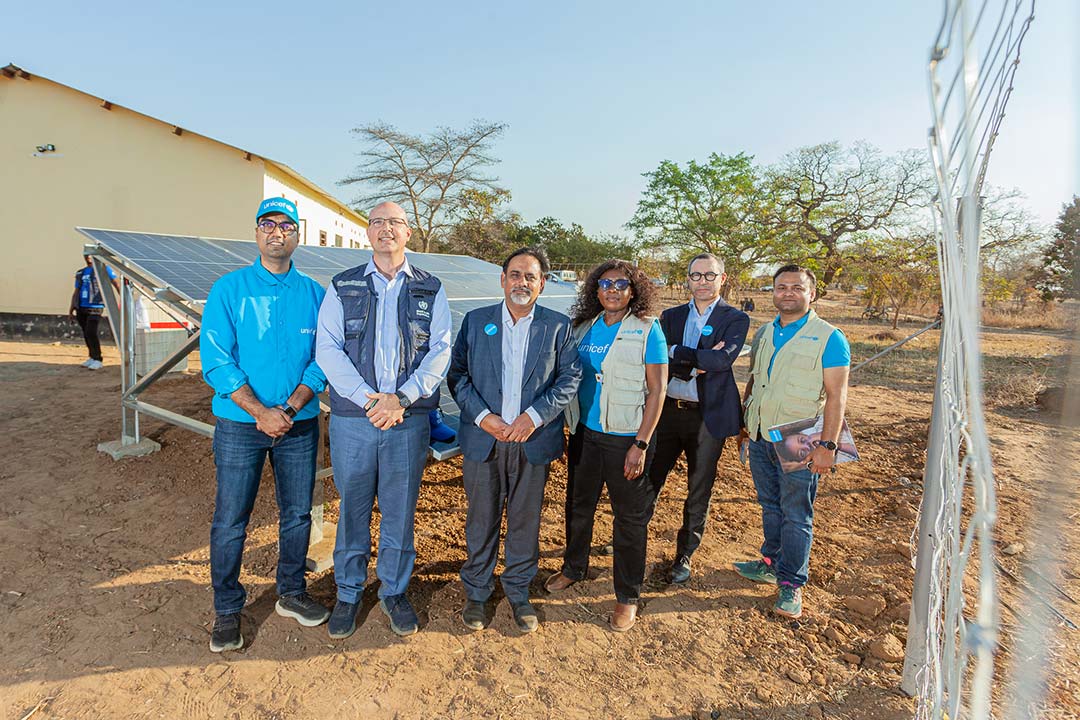Zambia is the first of four Health Facility Electrification (HFSE) implementors – alongside Pakistan, Ethiopia, and Uganda – to inaugurate a solarised facility
Over 250 remote healthcare facilities across Zambia will be powered with solar energy, benefitting an estimated 1.3 million people
Backed by Gavi funding, this initiative is designed to enhance the functionality of vaccine supply chains, power essential medical equipment, support staff housing and improve maternal and primary health services
Lusaka, 25 August 2025 – Zambia has become the first country to inaugurate a solar clinic as part of Gavi’s Health Facility Solar Electrification (HFSE) programme to power 250 clinics across the country.
With a commitment of approximately US$ 28 million in funding, the HFSE initiative will deploy 5–8 kWp solar photovoltaic systems and cold chain equipment (CCE) in 1277 health facilities across four countries: Zambia, Ethiopia, Pakistan and Uganda. Gavi has contributed significantly to the roll-out of solar-powered cold chain equipment through the Cold Chain Equipment Optimisation Platform (CCEOP). However, fridges alone aren’t enough. This pilot tests whether that model can be scaled to fully solarise health facilities by powering lights, equipment and digital tools. If successful, it could unlock co-investment and long-term government support for maintenance, ensuring sustainability.
By June 2026, once the project is complete, an estimated 25 million people living in the catchment areas of the newly solarised health facilities will benefit from an increased range of services such as expanded access to immunisation services and availability of clean water. This includes 1.3 million people in Zambia. One in four health facilities in sub-Saharan Africa have no access to electricity, and two in three lack reliable energy services – contributing to vaccine potency risks, delayed emergency care and sub-optimal maternal facilities that compromise the safety of mothers and newborns.
The solarisation of health facilities marks a major step forward in bringing clean, renewable energy to communities. For the first time, clinics that once lacked generators, night-time services and life-saving equipment now have reliable power to operate around the clock. This ensures that health workers can provide safe, effective care day and night, and that vaccines and critical equipment remain protected. By strengthening health systems, these countries are not only enhancing community resilience, but also contributing to climate resilience at a time when extreme weather events are becoming increasingly frequent.
“In places where one in four health facilities have no electricity, solarisation is more than a technical fix, it is a lifeline,” said Dr Sania Nishtar, CEO of Gavi. “With $28 million in Gavi support, we’re powering 1,277 clinics across four countries, starting with Zambia. This means vaccines stay at the right temperature, babies are born safely and health workers can care for patients day and night. It’s a bold step toward climate-smart, people-centred healthcare, and Zambia is leading the way.”
HFSE is designed as a learning agenda under Gavi’s broader CCEOP, generating evidence and insights to inform future investments in sustainable energy solutions for health systems. This initiative addresses critical energy gaps that hinder vaccine storage, essential medical services, and maternal and child health care in remote and underserved areas. Ultimately, HFSE supports countries in delivering life-saving vaccines and essential health services to the most vulnerable populations, helping to close equity gaps and advance progress toward universal health coverage.
MEDIA CONTACTS
Laura Shevlin
41 79 529 92 87
lshevlin@gavi.org
Meg Sharafudeen
+41 79 711 55 54
msharafudeen@gavi.org

